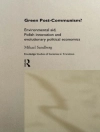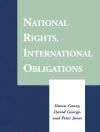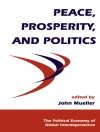The Cinema Makers investigates how cinema spectators in southeastern and central European cities became cinema makers through such practices as squatting in existing cinema spaces, organizing cinema ‘events, ‘ writing about film, and making films themselves. Drawing on a corpus of interviews with cinema activists in Germany, Austria, and the former Yugoslavia, Anna Schober compares the activities and artistic productions they staged in cities such as Vienna, Cologne, Munich, Berlin, Hamburg, Ljubljana, Belgrade, Novi Sad, Subotica, Zagreb, and Sarajevo. The resulting study illuminates the differences and similarities in the development of political culture—and cinema’s role in that development—in European countries with pluralist-democratic, one-party socialist, and post-socialist traditions.
表中的内容
Introduction
Chapter 1: In the middle of things: city, cinema and the public sphere
1.1. Cinema’s potential for creating a public sphere
1.2. Difference and the unfamiliar
1.3. The subject in process: rituals, revolt and storytelling
Chapter 2: Movements and places: modern order and the cinema-squats of the 1960s
2.1. Cinema and the modern attempt to eliminate ambivalence
2.2. To become cinema-makers: expanded and other cinemas, the Crni Talas and OHO
2.3. Transnationality: interaction and struggle vis-à-vis official strategies
2.4. Difference, privatized ambivalence and the (informal) public sphere
Chapter 3: Films and urban interventions: the rediscovery of difference since the 1960s
3.1. The migrant guest worker: Fassbinder’s interventions in the projection spaces of the imagination
3.2. The figuration of difference as aesthetic, sexual and ethnic difference in Yugoslav cinema since the 1960s
Chapter 4: Follow-up initiatives
4.1. Violence and humour: cinema activism in times of war
4.2. Enthusiasm and critique: cinema between flash mob, new urban transition spaces and art
关于作者
Anna Schober is professor of Visual Culture at Alpen-Adria-University Klagenfurt. She studied history, art history and political sciences in Vienna, Frankfurt/ Main and Colchester. She received her Ph.D. (in 2001) as well as her postdoctoral habilitation (in 2009) in Contemporary History at the University of Vienna and was guest researcher at several international institutions such as Verona University, Justus-Liebig-University Gissen, the International Research Center for Cultural Studies in Vienna and the Jan van Eyck Academy in Maastricht.
Her work explores the history and aesthetics of the public sphere. It focuses on visual culture (art and in particular popular visual culture, for example film and cinema), transnationality and concepts of diversity. Currently she directs the research project Everybody: A Transnational Iconography (funded by the Deutsche Forschungsgemeinschaft)
Anna Schober’s writings have appeared in Afterimage, Performance Research, Gender Forum, International Journal of Media and Cultural Politics, Zeitschrift für Kulturphilosophie (among others). She is the author of Blue Jeans. Vom Leben in Stoffen und Bildern (Campus Verlag) and Ironie, Montage, Verfremdung. Ästhetische Taktiken und die politische Gestalt der Demokratie (Wilhelm Fink Verlag).
The Cinema Makers: Public Life and the Exhibition of Difference in South-Eastern and Central Europe since the 1960s is published by Intellect.












